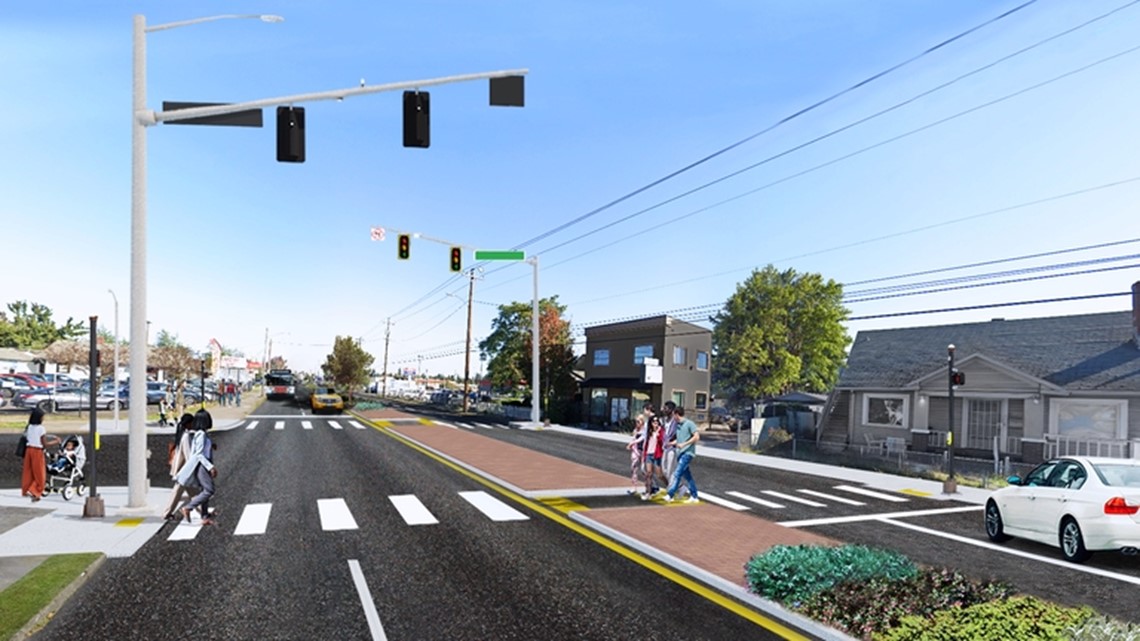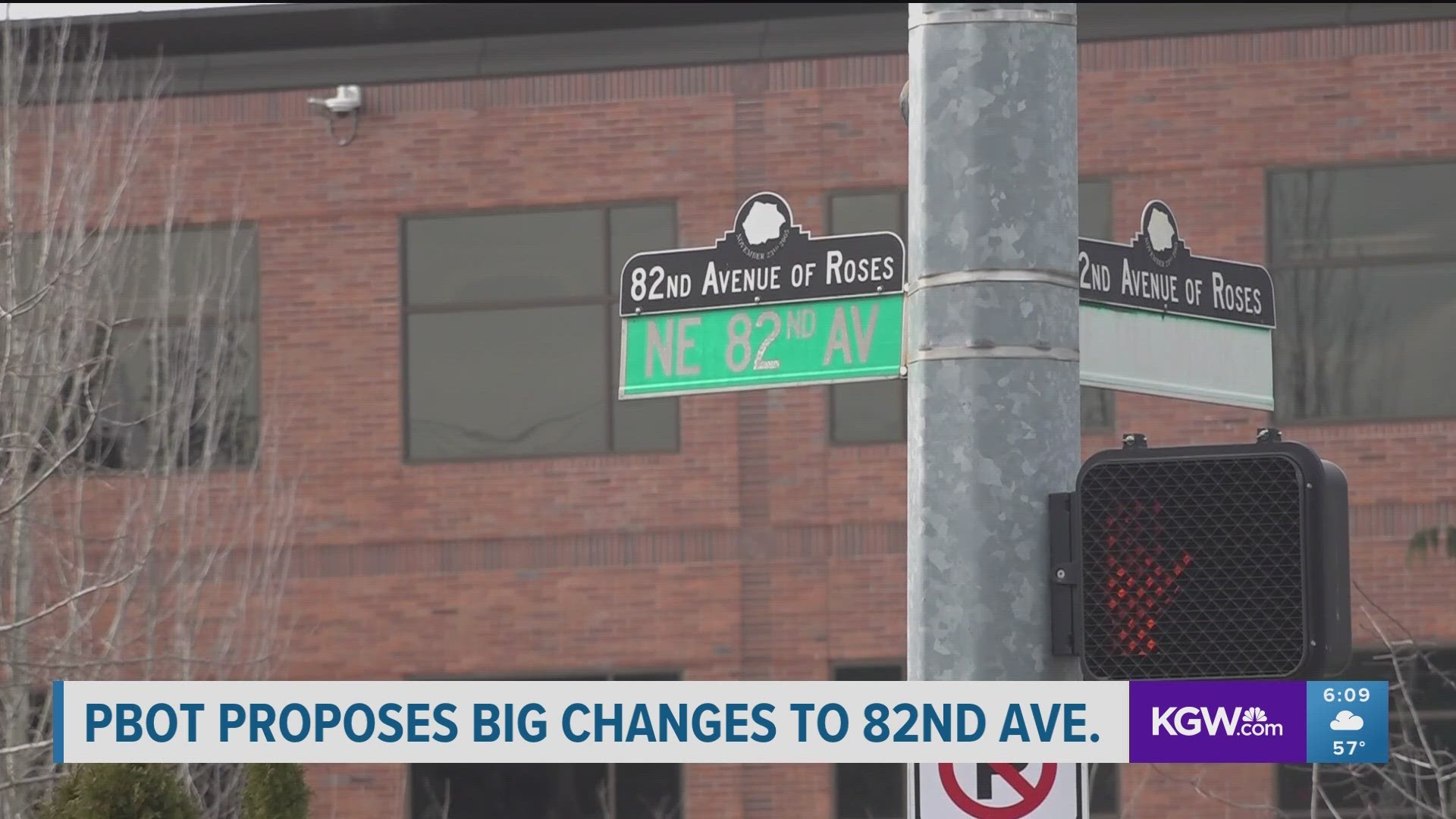PORTLAND, Ore. — The Portland Bureau of Transportation has released illustrations for its upcoming "82nd Avenue Critical Fixes: Major Maintenance" project, which is aimed at increasing pedestrian safety on one of the city's most dangerous streets. The work is expected to get underway this summer.
"We’ve heard loud and clear that people want to see change on the ground on 82nd Avenue; they want to see a safer street now," said Dylan Rivera, PBOT spokesperson.
The five-lane 82nd Avenue runs the length of northeast and southeast Portland, roughly paralleling Interstate 205. It was an "orphan highway" under the control of the Oregon Department of Transportation until 2022, when the city and state agreed to transfer the corridor to Portland's jurisdiction and provide state funding to help bring it up to city standards.
PBOT got started with an initial round of safety upgrades early last year; the road's speed limit was lowered to 30 mph and the city installed speed reader signs to warn drivers to slow down. Traffic lights were also adjusted to give pedestrians a head start and decrease the opportunities for drivers to cruise through successive green lights along the corridor.
The Critical Fixes project will be a much larger batch of improvements, adding rows of trees to serve as a buffer between the sidewalks and the road in some places and converting some parts of the street's central turning lane into tree-lined or raised red brick islands in places with a history of high crash rates.


"We are installing new median islands that will help bring some order to the traffic movement on 82nd Avenue and prevent a lot of the helter-skelter left turn, right turn... that has led to more than a dozen deaths in ten years on 82nd and more than 120 serious injuries on this one corridor," Rivera explained.
But not everyone is on board with the proposed medians. Sam Kotwicki lives nearby and said he's already dealt with frustrating changes on Southeast Division and he's not eager for a repeat on 82nd Avenue.
"I just imagine where I lived on Division, when they did that, it was a hassle to try to get out of my neighborhood," Kotwicki said. "Medians are a part, maybe, but not the whole way. I would say probably look for other alternatives and more feedback."
Kris Vo agrees with Kotwicki that PBOT should search for other solutions to slow down traffic. Vo used to work on Division and said the medians cutdown the number of customers he served.
"I used to work for Taco Bell, and the moment they built (medians in) the middle lane, we lost like, almost half of the business," Vo said.
Some sections of the road will be completely rebuilt from the ground up, according to a Wednesday news release from PBOT, with some intersections rebuilt to have new traffic signals and modern street markings. The changes will also provide better access to TriMet bus Line 72 and new pedestrian and bike crossing signals where Neighborhood Greenway routes cross the corridor.
The project won't change the entire corridor — PBOT said it's focusing on the area around McDaniel High School from Northeast Fremont Street to Northeast Schuyler Street, as well as the area from Southeast Mills Street to Southeast Foster Road that includes the Jade District and Eastport Plaza Shopping Center.
The conceptual drawings released on Wednesday signal that the project has reached the 60% design stage, PBOT said. The bureau plans to spend the spring gathering public feedback and finalizing the designs, with the goal of getting city council approval and setting up a construction contract over the summer. Construction is slated to begin late in the summer with sewer and utility work and continue through the fall and winter into 2025.
'We’ve taken that input from last year and refined it to a point where we think everyone’s needs are being met, and we want to hear from folks now: 'Did we get it right?'" Rivera said.
The Critical Fixes project won't be the end of the improvements; PBOT describes it as just one of several projects that it plans to build on 82nd Avenue in the next three years, under a broader umbrella that it calls Building a Better 82nd.
The transfer plan between the city and state pledged a total of $185 million in combined city and state transportation funding for the improvements, with some of the money coming from the American Rescue Plan Act. The Critical Fixes project is funded by $55 million from the American Rescue Plan money.

